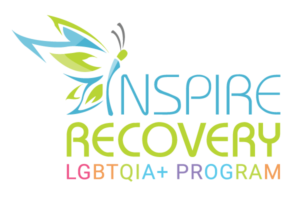Struggling with a drug or alcohol addiction?
Contact Inspire Recovery for a FREE & Confidential Consultation.
Dialectical Behavior Therapy
Dialectical Behavior Therapy (DBT) is an evidence-based treatment that is supported by much research and is a type of Cognitive Behavioral Therapy (CBT). The theories behind DBT suggest that varied emotional responses exhibited in behavior are influenced by a social component. Reactions vary on an individual basis as they relate to different types of interpersonal relationships, such as romantic, family and friend relationships, which tend to carry the most emotional weight.
DBT for LGBTQ+ Group Therapy
Dialectical Behavior Therapy (DBT) is an effective treatment for individuals struggling with mental health and substance abuse issues. DBT benefits members of the LGBTQ+ community who face unique challenges in their daily lives. Dialectical Behavior Therapy helps individuals who lack coping skills to deal with sudden outpourings of emotion. It helps to identify and practice effective means of handling difficult and challenging situations. Many people in mental health and substance abuse communities experience intense emotional agitation. It is more rapidly elevated than those without such issues.
This influences stronger more pronounced reactions than seen in an average person. Following such disturbances, it takes a longer length of time for more sensitive people to return to a relaxed emotional baseline. DBT addresses these problems. It is most effective in treating borderline personality disorder, anxiety disorders, and depressive disorders. DBT addresses behaviors and ways of being that promote suicidal and self-harming ideations immediately.
Principles and Goals of DBT
Cognitive principles form the basis of DBT. How a person feels and acts is affected by negative assumptions and core beliefs they may have about themselves. The primary goal of DBT is to support individuals in eradicating self-deprecating patterns of thought and conceptions about themselves. DBT helps individuals identify their strengths and positive characteristics, and build upon them to boost their self-esteem and self-worth.
A therapist employing DBT methodology is involved in a collaborative effort with their clients and other staff members. The client’s social relations will be evaluated in therapy. Therapy will focus on improving their approach to social situations. This may involve role-playing, utilizing self-soothing techniques, and clients being challenged to practice new skills in their daily lives when not in therapy.
For members of the LGBTQ+ community, DBT can provide a safe and supportive environment for exploring issues related to sexual orientation, gender identity, and discrimination. Group therapy sessions, in particular, can be an excellent testing ground for practicing new skills and building social skills.
Individualized and Group Therapy Sessions
DBT for LGBTQ+ group therapy can be a powerful tool for improving emotional regulation, fostering self-respect, and building a positive self-image. Overall, it can greatly benefit individuals seeking to enhance their mental health. The two crucial platforms for DBT are individualized therapy sessions and an equal amount of group therapy. Improving mindfulness, interpersonal effectiveness, distress tolerance, and emotion regulation are focuses that build upon each other within these arenas. They work together to enhance an individual’s emotional well-being.
Group therapy can be used as a testing ground, as ease and success in interacting with other people evolve. A plan for adapting the behaviors that affect quality of life and relationships is put into action, as the therapy continues onward. This approach helps individuals overcome challenges and improve their daily interactions. Structuring a positive self-image and fostering self-respect is also important aim of DBT. Learning how to handle emotional distress can be essential for a client, and finding ways to do so will be the empowering factor. DBT can provide tools and skills for individuals to better manage their emotions.







